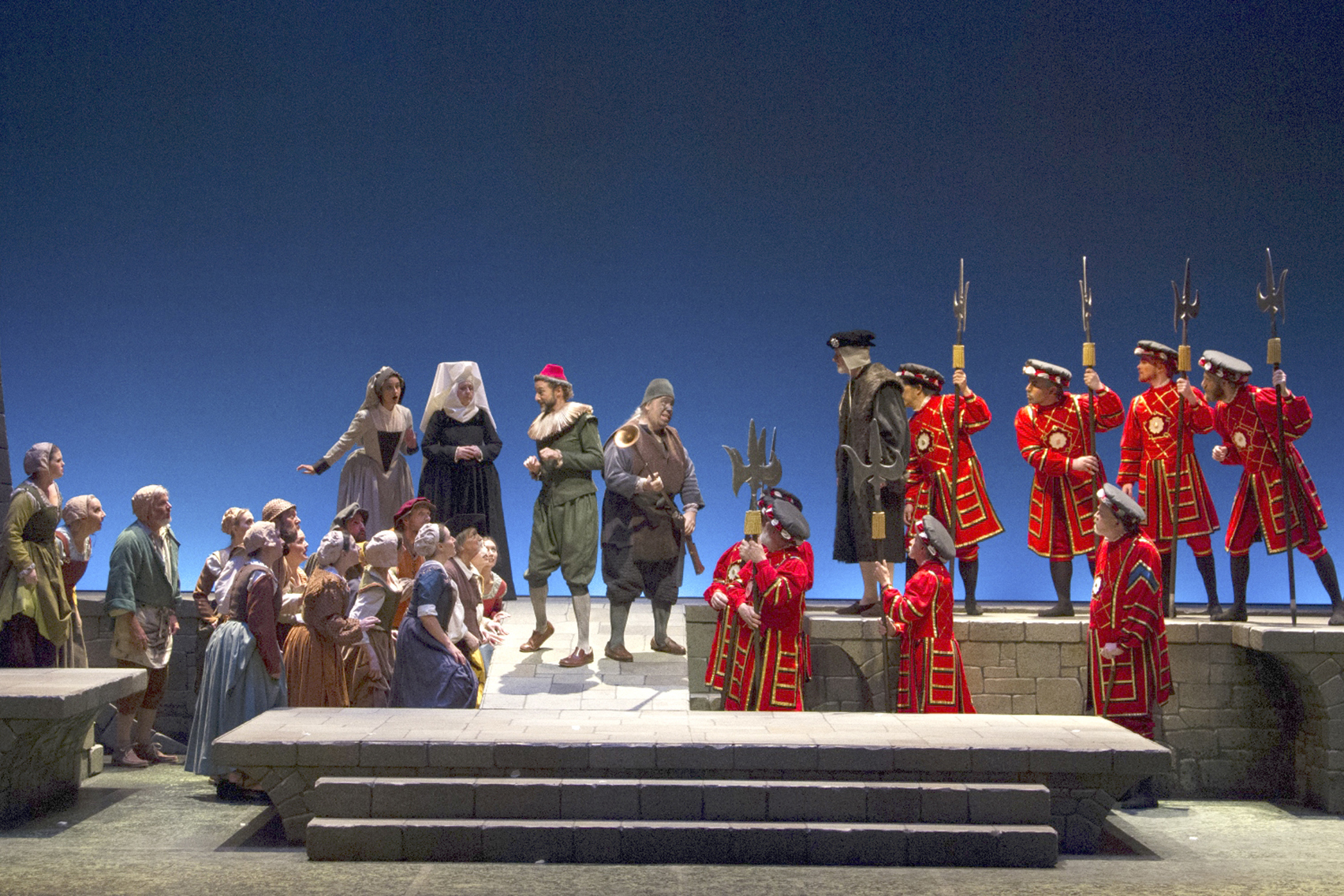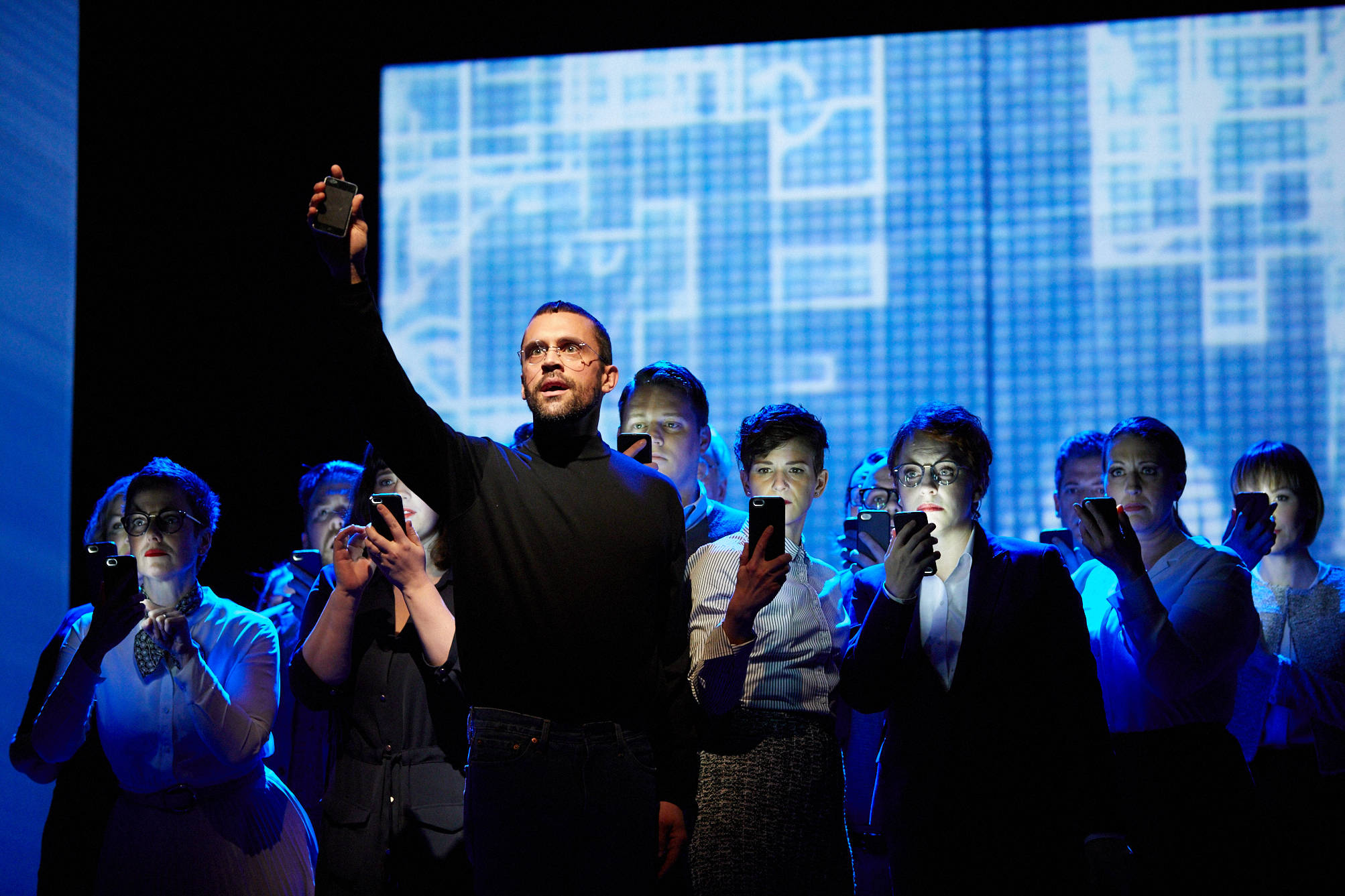Atypical among their Savoy operas, Gilbert and Sullivan’s The Yeomen of the Guard uniquely offers, in roughly ascending order of significance: their most operatically grand act finale ever; a rather unlikable male lead role; no satire, of Victorian theater, politics, or social conventions; a bittersweet ending, despite multiple pairings-off; and a plot that, if not exactly “serious,” substitutes hints of melodrama for their usual farcical “topsy-turvy” approach.
The act finale and the bittersweet ending are why the 1888 opera is in many ways my favorite of their shows, but its change in tone, among other things, means it gets staged infrequently—though the Seattle Gilbert and Sullivan Society, whose production opened Friday, does cycle regularly through the duo’s 13 extant shows, which more likely explains why they haven’t done it since 2000. Not that Yeomen isn’t funny; one character, Jack Point, is a jester by trade; one couple, Phoebe and Wilfred, spar with the bite of Beatrice and Benedick, or even Sterling Archer and Lana Kane.
That male lead, Colonel Fairfax, is at the center of two stratagems in a tale set around the Tower of London in Tudor days. In one, he’s in hiding as a member of the title organization to avoid being beheaded on trumped-up sorcery charges; he also needs to marry it-matters-not-whom to keep his estate out of the hands of an unseen villain. The plots intersect when, in disguise, he flirts with a blindfolded Elsie, the woman he had already secretly married, making her fall for him—and feel considerable guilt about it—without revealing that they’re already wed. On top of that, he similarly uses and abuses Jack, who’s in love with Elsie, but who ends the show alone. Austen would have lashed Fairfax with irony, Dickens would have brought him to a bad end, but librettist Gilbert doesn’t seem much disturbed by his ostensible hero’s behavior. Though blessed with a strong tenor capable of a ringing high C to end Act 1, Anthony James doesn’t work too hard to ameliorate Fairfax’s character flaws, playing him as a straight-up asshole.
As Elsie, Morgan Duterte conquers the opposite challenge: bringing a pulse and personality to a G&S soprano lead, who as a tribe suffer from a sweetness that can prove bland. Far from bland were Miranda Antoinette Troutt and William J. Darkow, snappy and earthy as Phoebe (in love with Fairfax) and Tower jailer Wilfred (in love with Phoebe). Bianca Raso brought a surprising amount of comic zip to the opera’s smallest role, Kate; she is a true find, and I urge the Society to keep her at the front of its Rolodex. Most vital to Yeomen is Jack Point, G&S’s greatest comic-baritone role, and Mark Rabe, nimble (physically and verbally), poised, and buoyant, brings the necessary magic—and pathos, in the affecting Pietà-like final tableau where he collapses into the chorus’ arms. Or “falls insensible,” as Gilbert ambiguously put it, leaving directors to decide whether Jack dies, or merely faints, of a broken heart.
Despite its charms, it would be hard to argue that this production either takes the full measure of the show or lives up to the Society’s usual standard. Of course there are factors outside its control; the set and the size of the chorus suggest economic constraint. Paul Budraitis’ direction is uncomplicated and as a whole less imaginative, if memory serves, than the more vivid 2000 production, though one subtle but risqué sight gag with halberds during a Fairfax/Phoebe duet must have been fun to work out in rehearsal. Seattle Repertory Theater, Seattle Center, pattersong.org. $16–$40. 7:30 p.m. Fri.–Sat., 2 p.m. Sun. plus Sat., July 23. Ends July 30.
gborchert@seattleweekly.com








